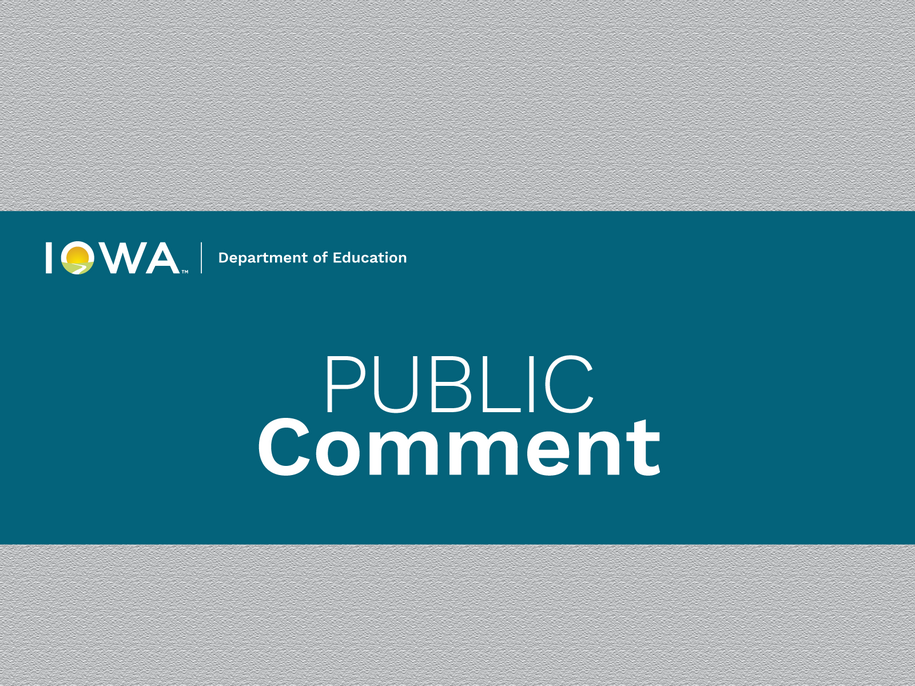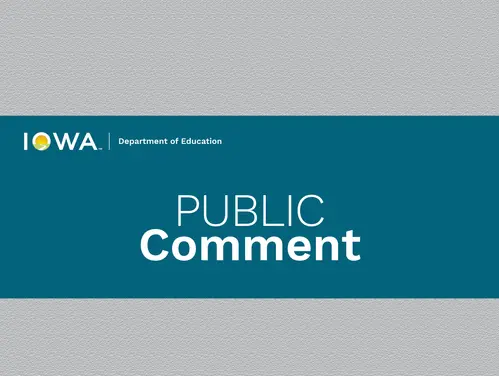The Iowa Department of Education is seeking input from the public on the state’s proposed updates of the Every Student Succeeds Act (ESSA) accountability plan.
The state is required to update its ESSA state accountability plan because the goals and targets do not reflect the current performance of students and parts of the plan do not reflect current practice
In designing a new system, the Department has conducted extensive modeling to ensure the system is rigorous, reliable and fair. Department leadership conducted initial consultation with all superintendents at each of the nine regional superintendent meetings, nearly 400 curriculum and instructional leaders, members of the State Board of Education, executive leadership of major public education associations and AEA executive leadership.
Informed by that robust consultation, the Department made multiple updates to the initial proposed changes. A statewide survey is the next step in receiving broader input. The feedback will inform any final updates before the Department submits the accountability plan to the U.S. Department of Education.
Feedback on the proposed ESSA state accountability plan changes will be collected through Feb. 2. All comments will remain anonymous.
ESSA, signed into law in 2015, maintains a focus on high expectations for all students while giving states and local school districts ownership over systems of school accountability and support.

ESSA requires states to develop comprehensive plans for accountability and support, identify schools for support and improvement and publish school report cards reflecting performance. Iowa’s system for accountability and support under ESSA is being developed with broad public input to fit the state’s context and focus on helping schools find solutions that work for them.
Iowa’s report card, called the Iowa School Performance Profiles, includes each school’s scores on a set of accountability measures, such as state assessments. The reports display results based on a school’s overall performance and the performance of subgroups of students, including students with disabilities, students who are English Learners and students from low-income backgrounds.
